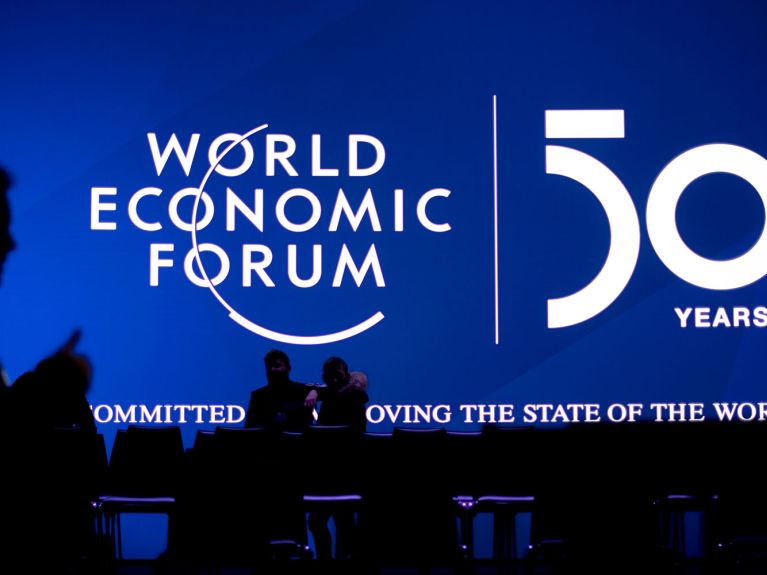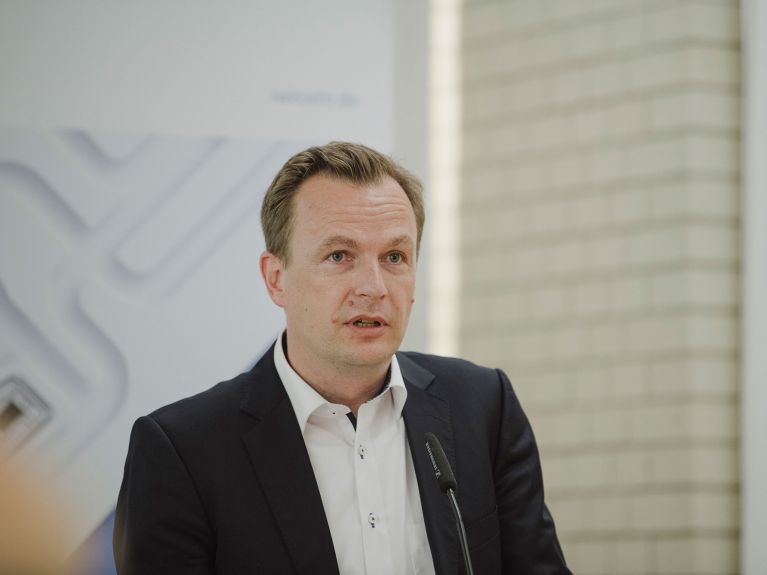Rethinking capitalism
In Davos, experts from the fields of politics and business will be discussing a new economic form. Professor Jens Südekum explains the issues involved.

Professor Südekum, the 50th annual meeting of the World Economic Forum aims to promote 'stakeholder capitalism' as a model for the future. Can you briefly explain the term for us?
The economist Milton Friedman once said that the only task of companies was to maximize their profits, and that this also helped society as a whole. This approach has proved to be too naive. Of course, the interests of the owners – the shareholders – are still very high on the list of priorities. But modern companies today must do more that this. They must also take into account the interests of other groups – for example their employees, the critical public, and not least the environment, i.e. the 'stakeholders', even if this results in lower economic rewards in individual cases.

Up until now, a distinction has been made between shareholder capitalism and state capitalism. How does stakeholder capitalism differ from these two forms?
In the first model, everything is subordinated to the interests of the owners; in the second, the state can intervene in corporate management at all levels. The stakeholder model is more broadly based. It focuses on market-based processes, but also sees companies as having a responsibility to society as a whole. This is of particular importance today because the lack of skilled workers will be, or already is, the central issue. Today, however, top, highly trained specialists expect more from their employers than just good salaries. Many are looking for a mission, a meaningful activity. Companies must react to this. Otherwise, they will also have problems with an increasingly critical public that today also expects more than just functional products at low prices.
Ecology was left out of the equation for a long time. That is currently changing.
How do you see the current development in Germany?
In the 1950s, the system of the social market economy practised in Germany already recognized that shareholder value alone was not enough. Germany focused not only on social equality, but also on employee participation and co-determination. But ecology was left out of the equation for a long time. That is currently changing. Many companies have recognized that they will only survive in the long term if they focus on green growth and climate-neutral production.
Designing stakeholder capitalism is one thing, implementing it is another. What will companies be judged by in the future?
Companies must be self-critical and constantly ask themselves: do I offer an attractive environment for the best talent? Are my entrepreneurial activities in line with the ideas of society and thus with those of my critical customers? In the long term, a company will only be successful if it takes these social and ecological aspects into account.
Interviewer: Martin Orth
Prof. Dr Jens Südekum lectures in international economics at the Düsseldorf Institute for Competition Economics at the Heinrich Heine Universität. In its 2019 ranking, the Frankfurter Allgemeine Zeitung voted him one of the 20 most influential economists in Germany.
You would like to receive regular information about Germany?
Subscribe here:


